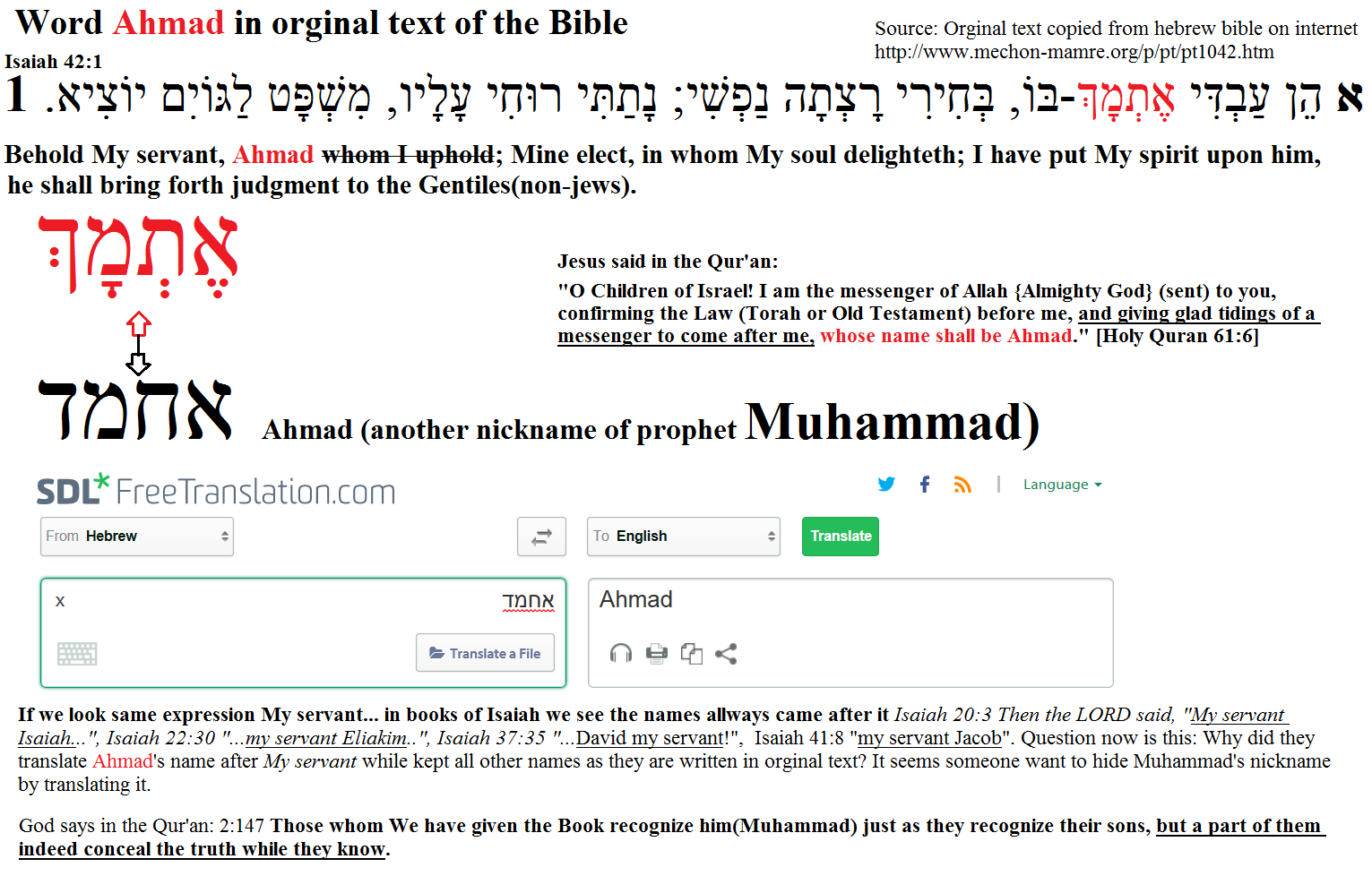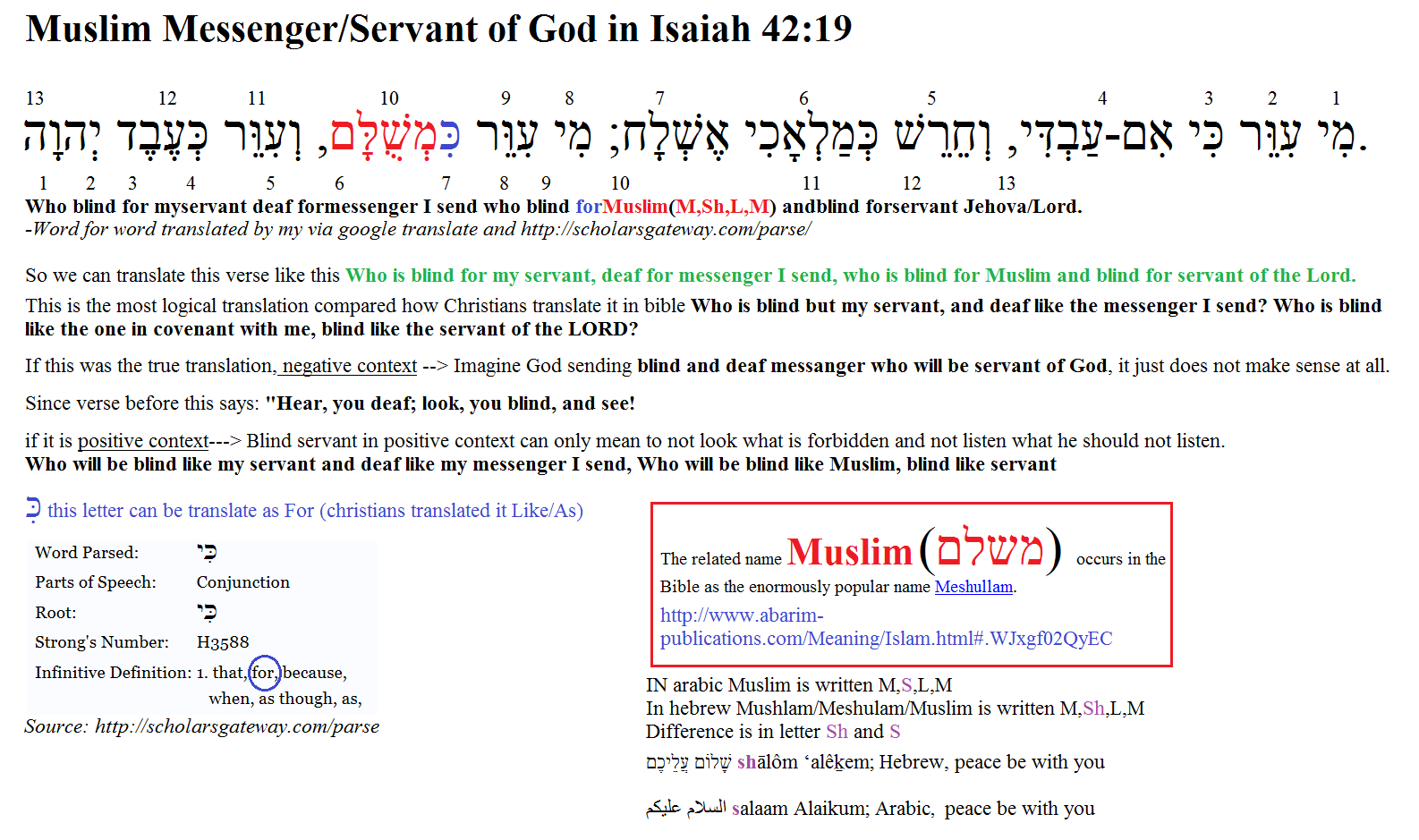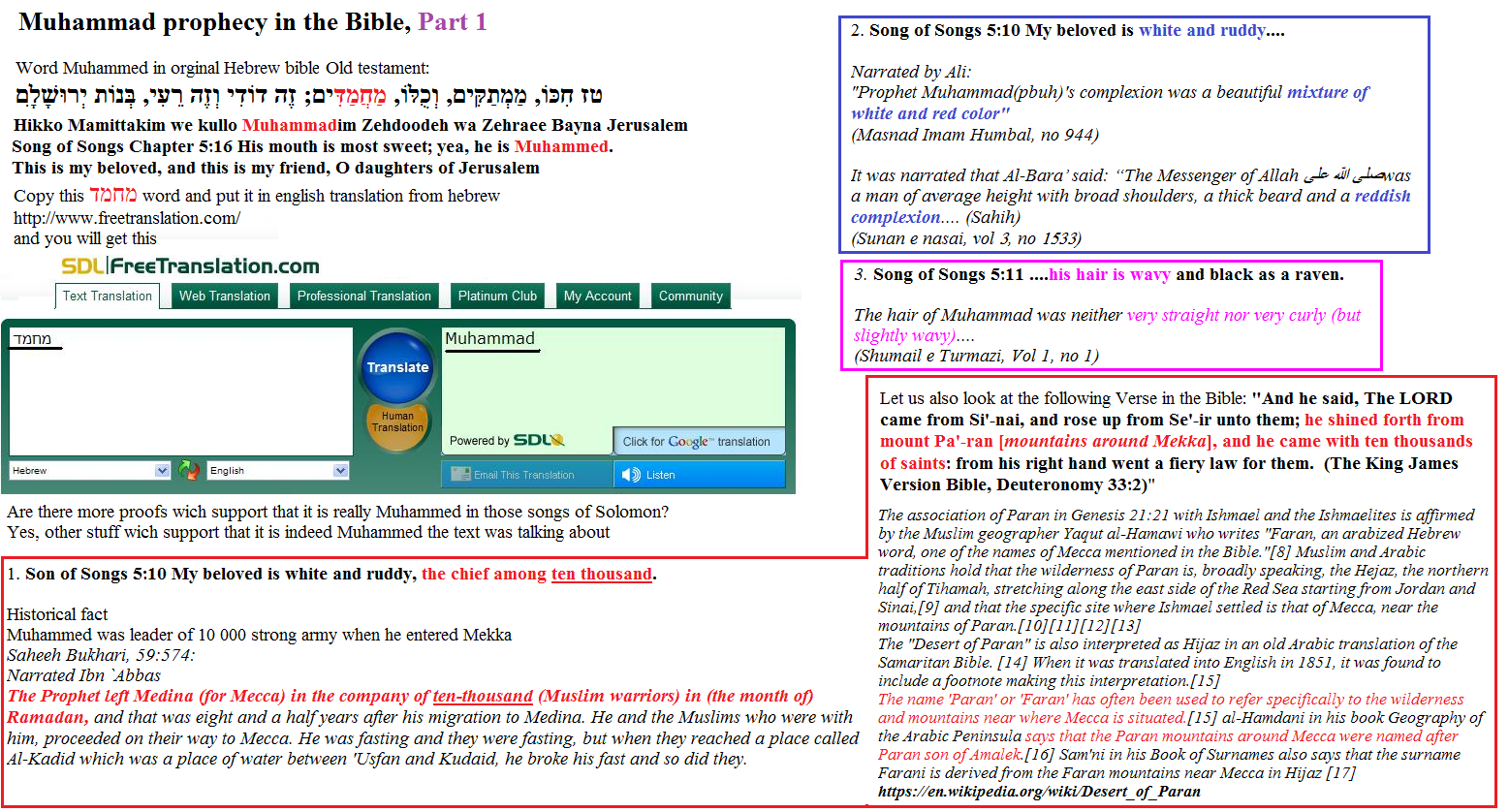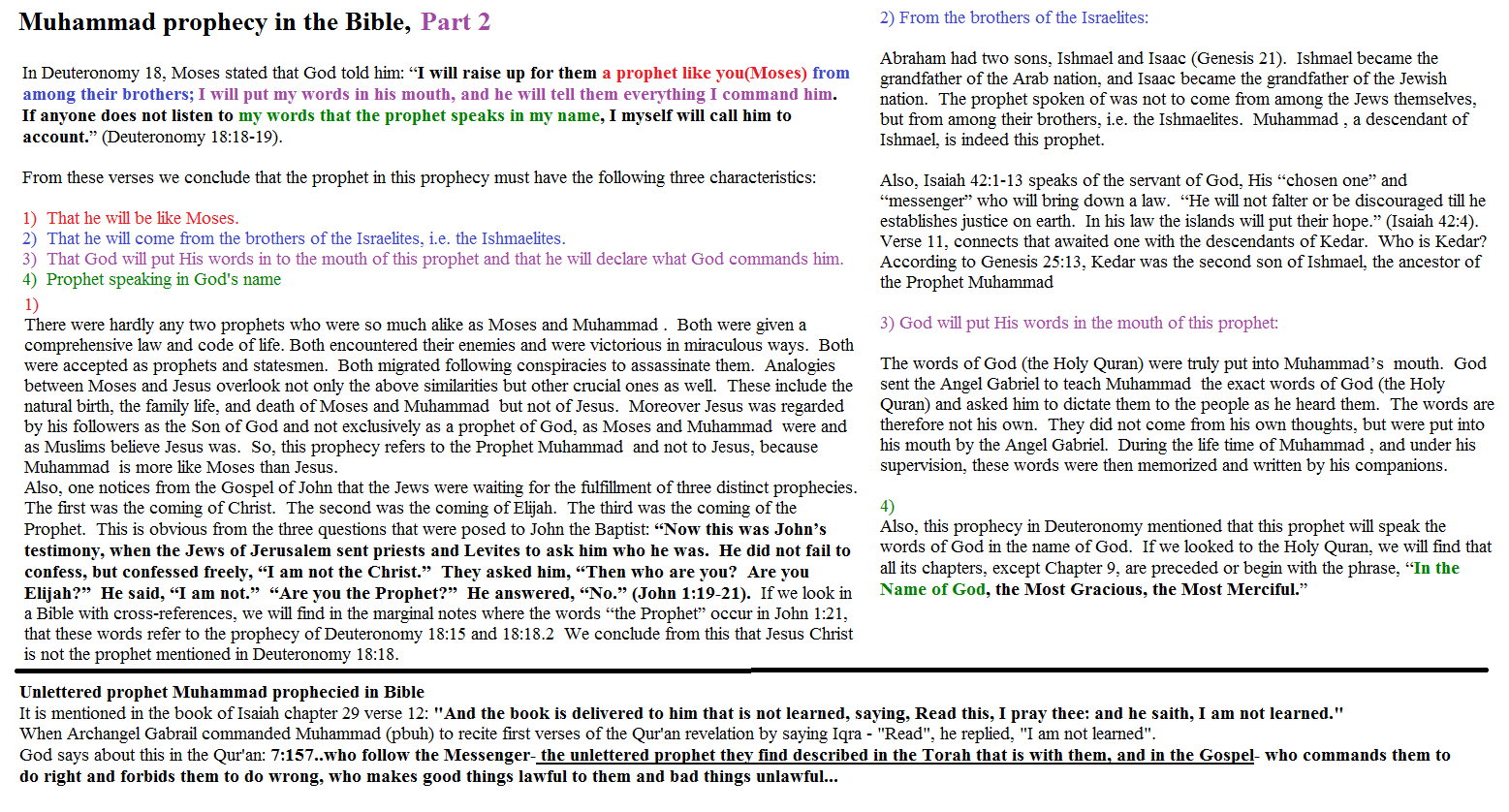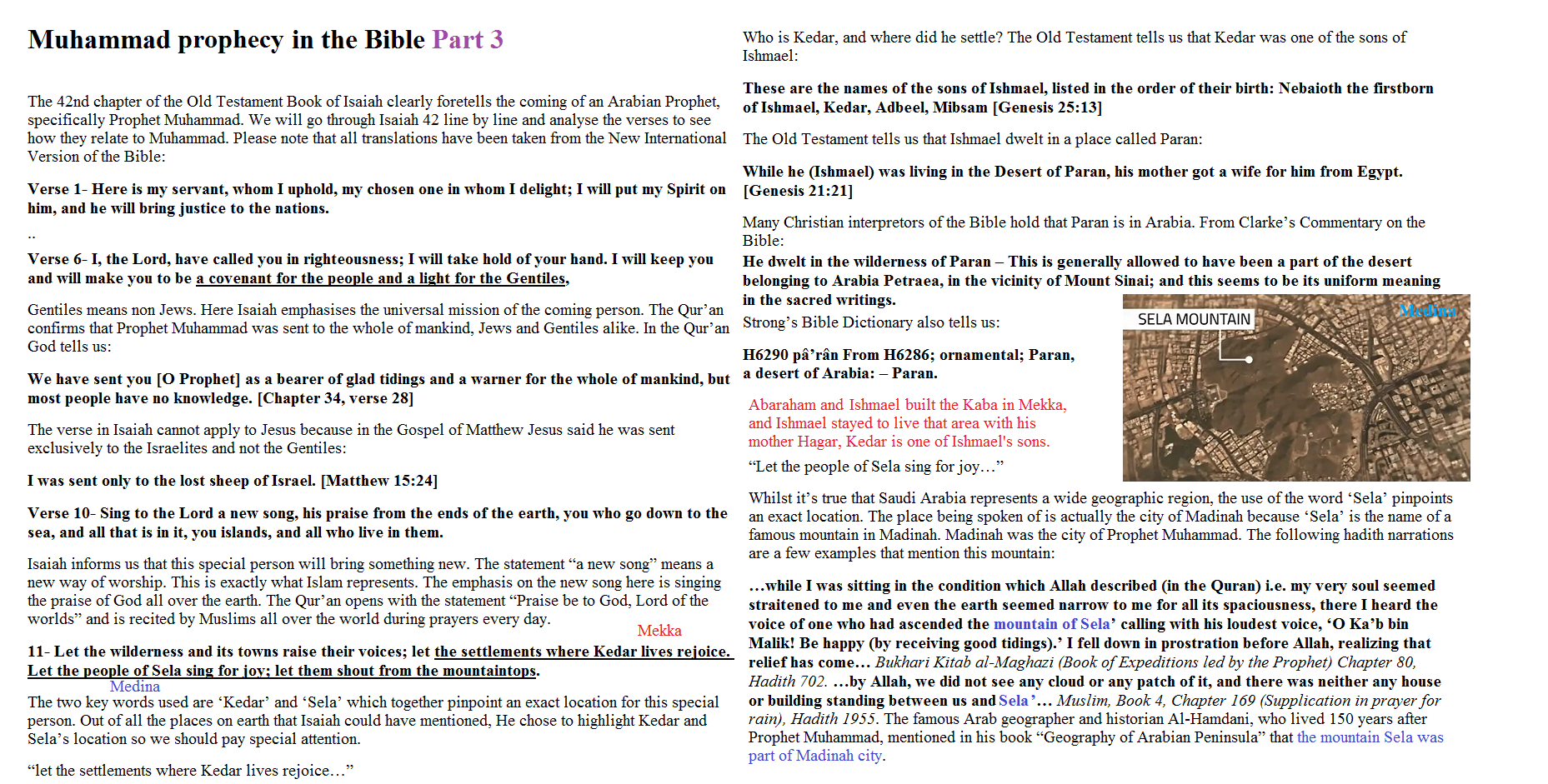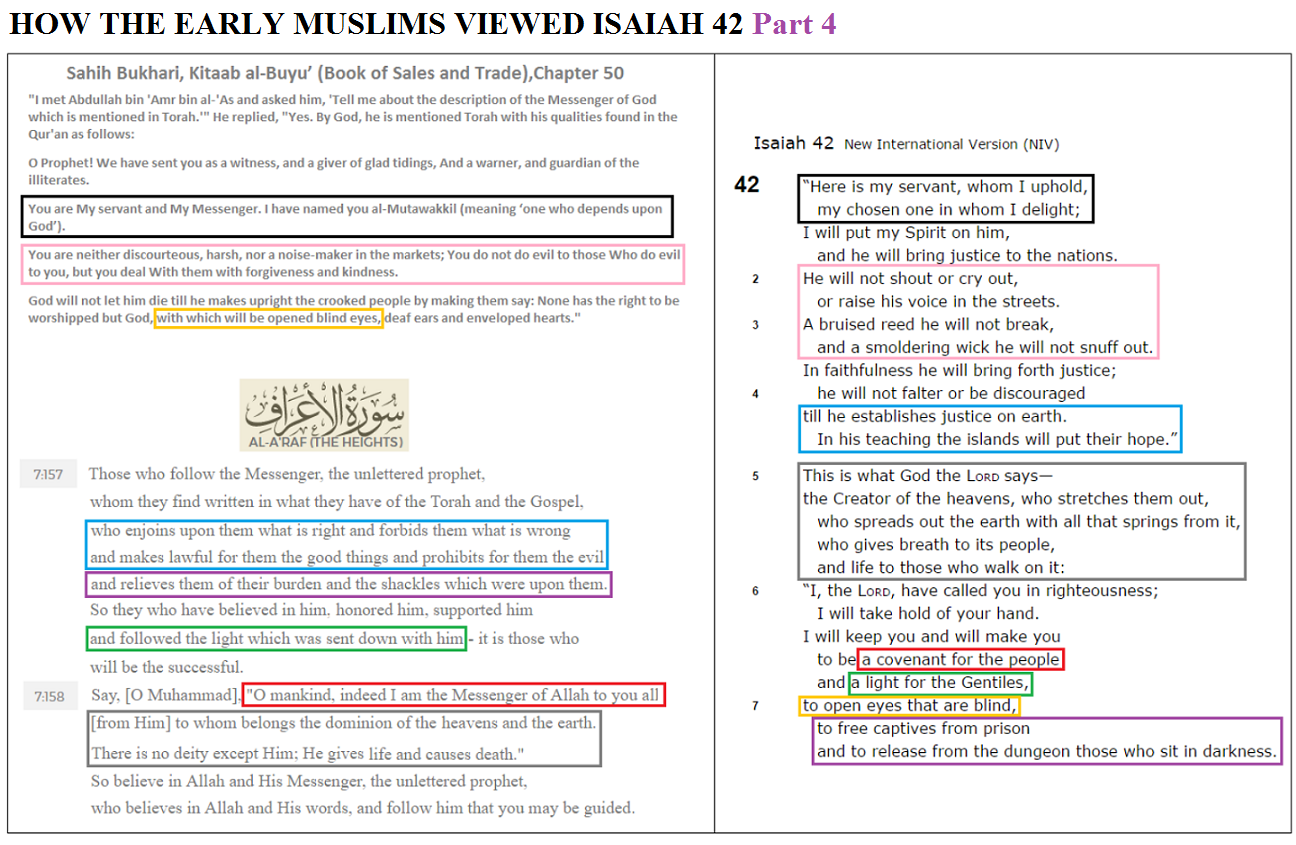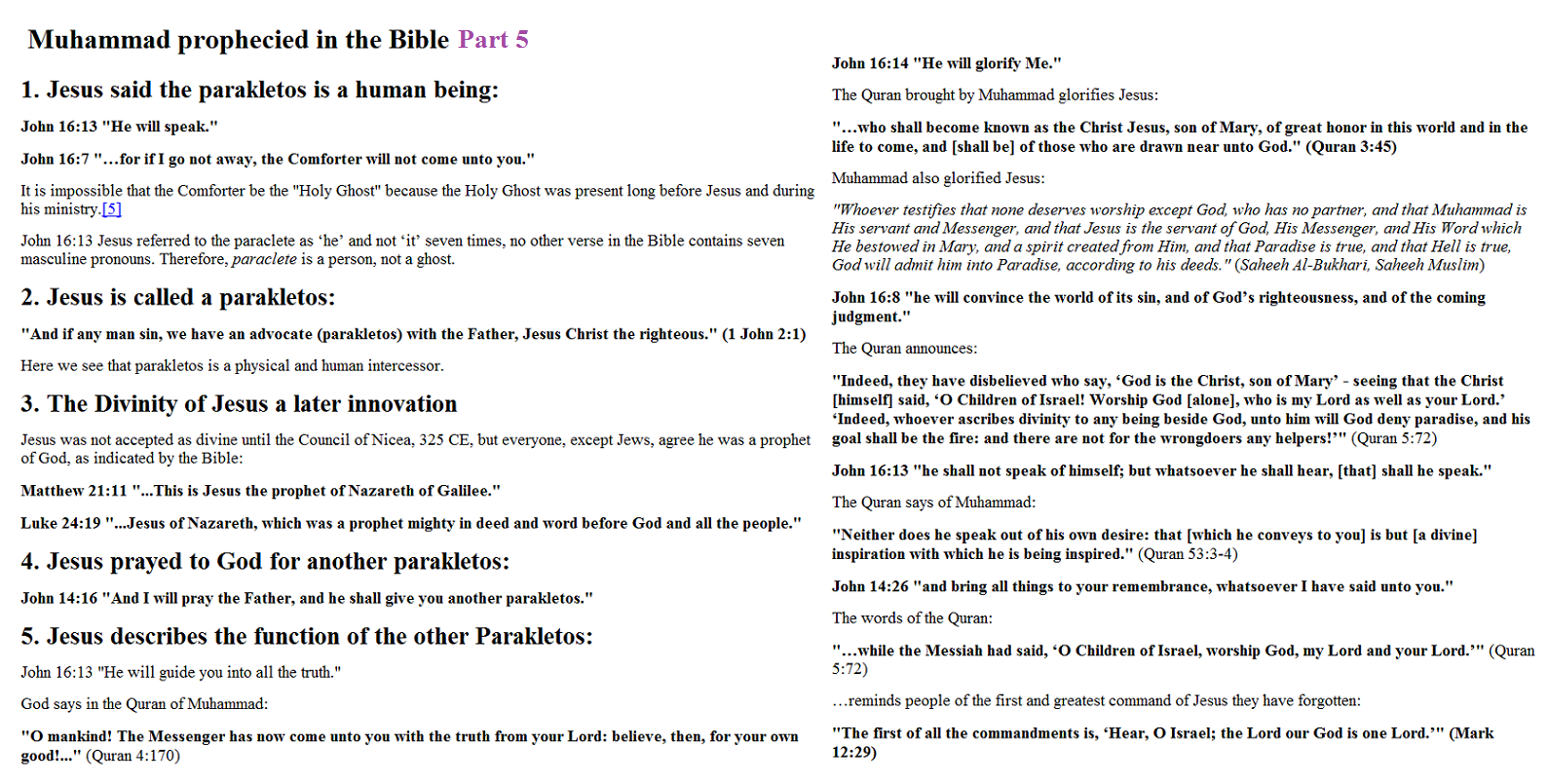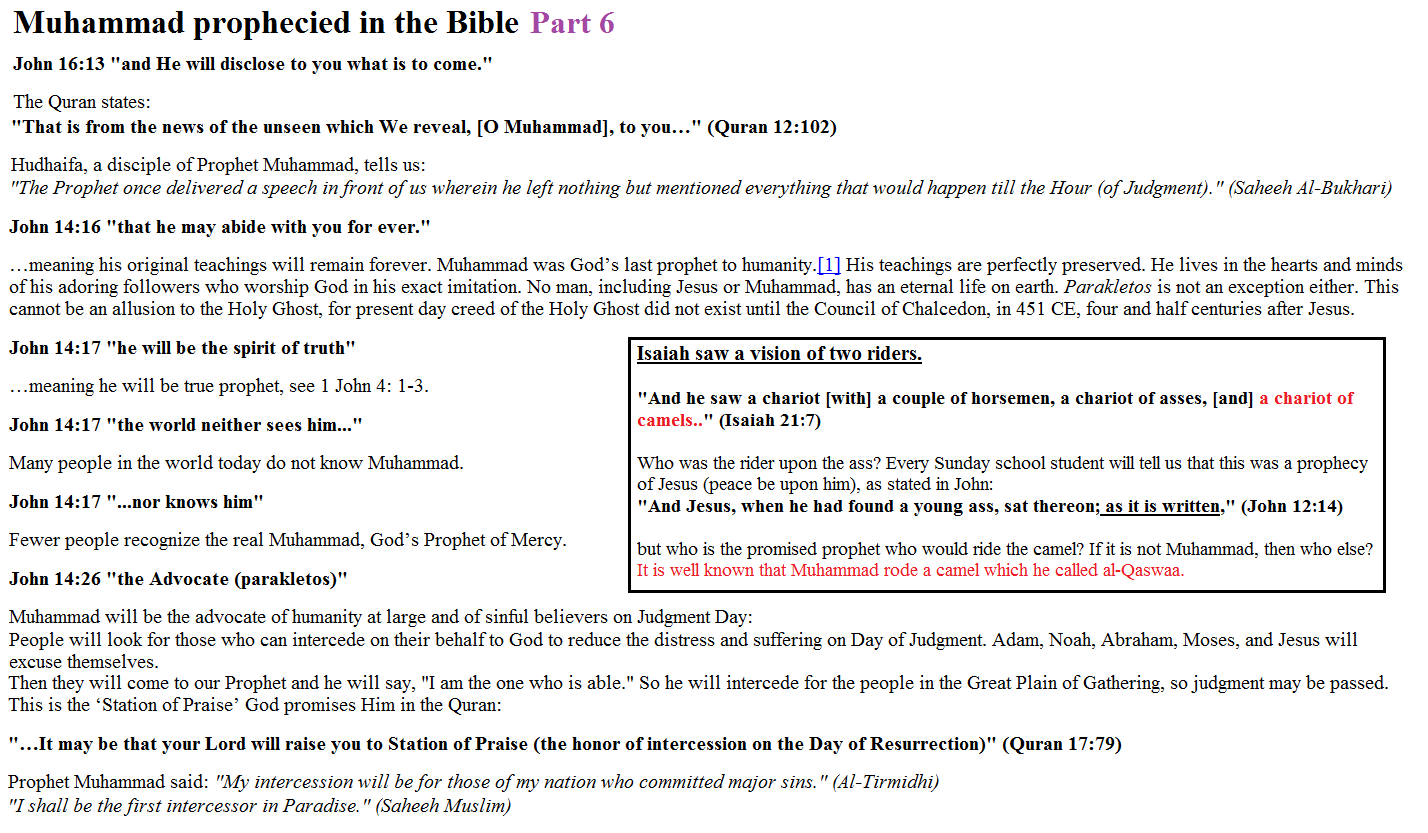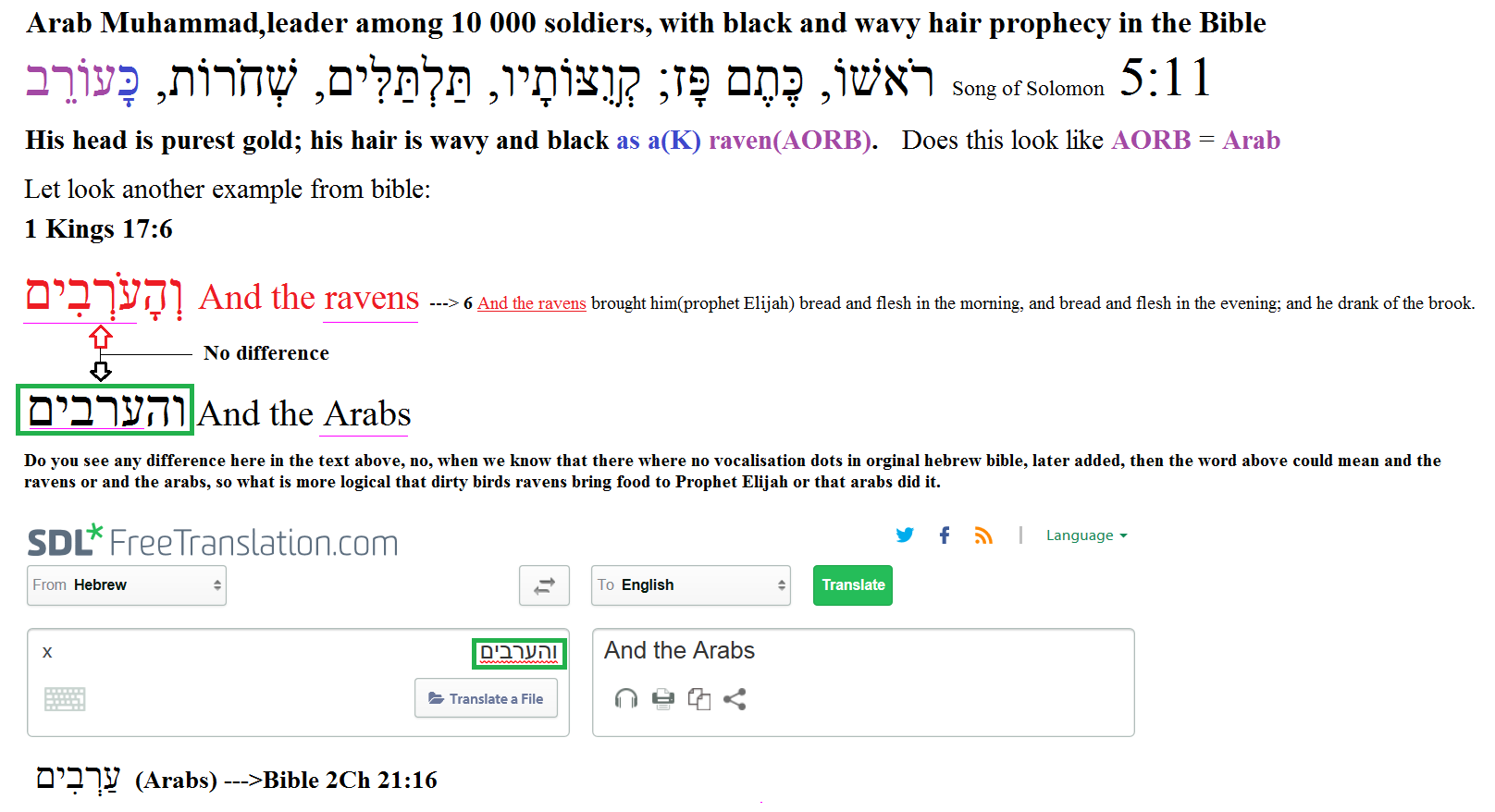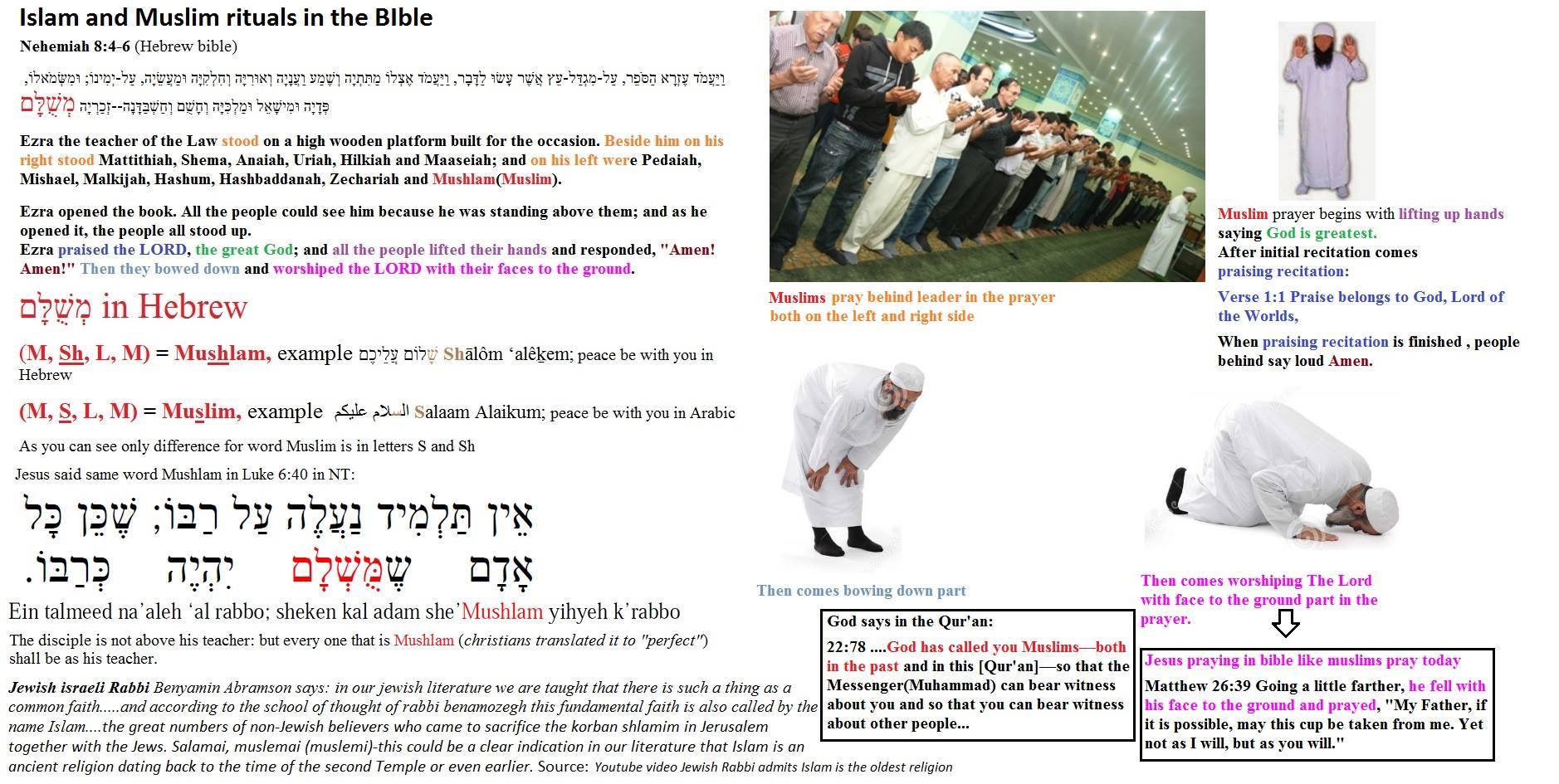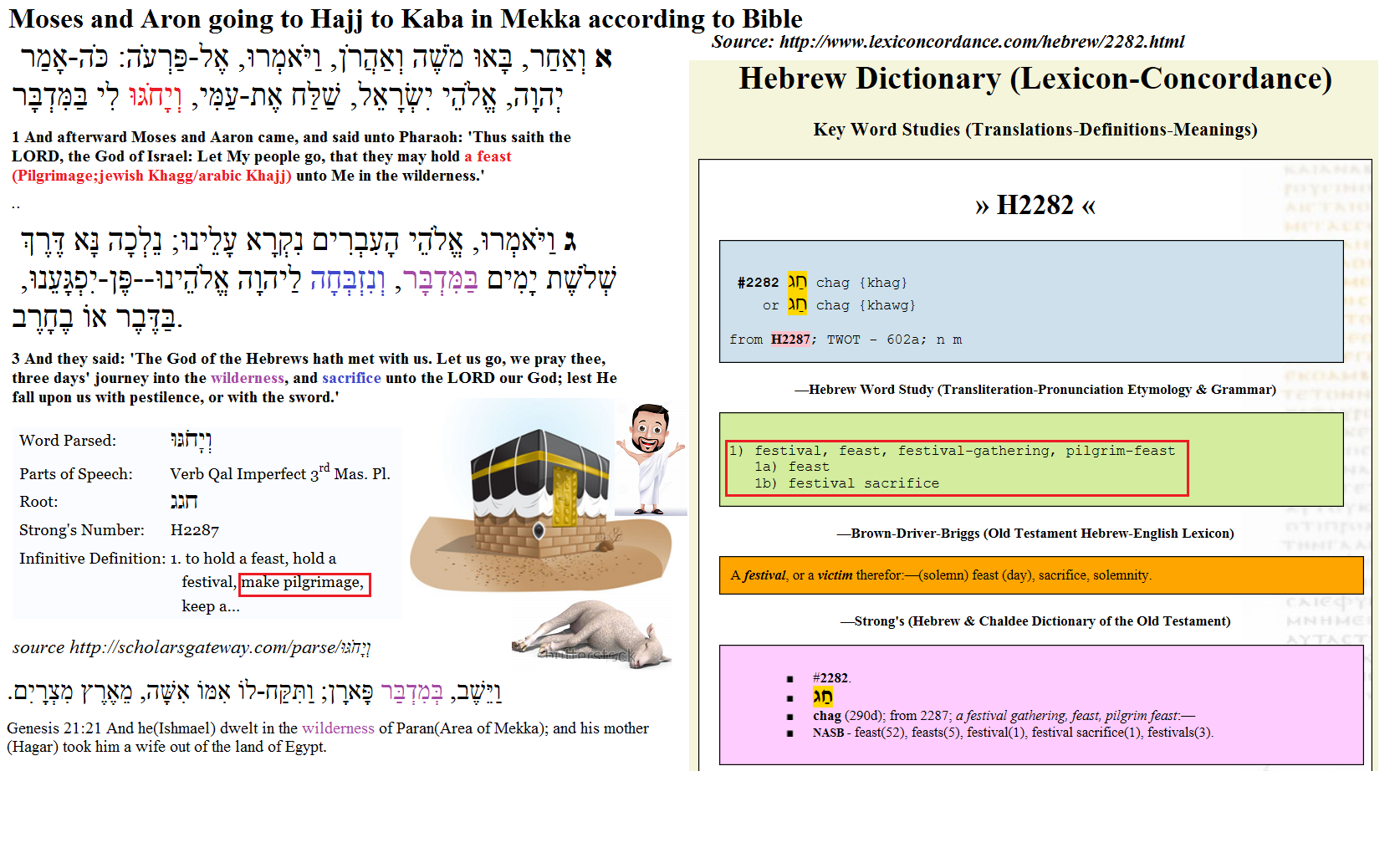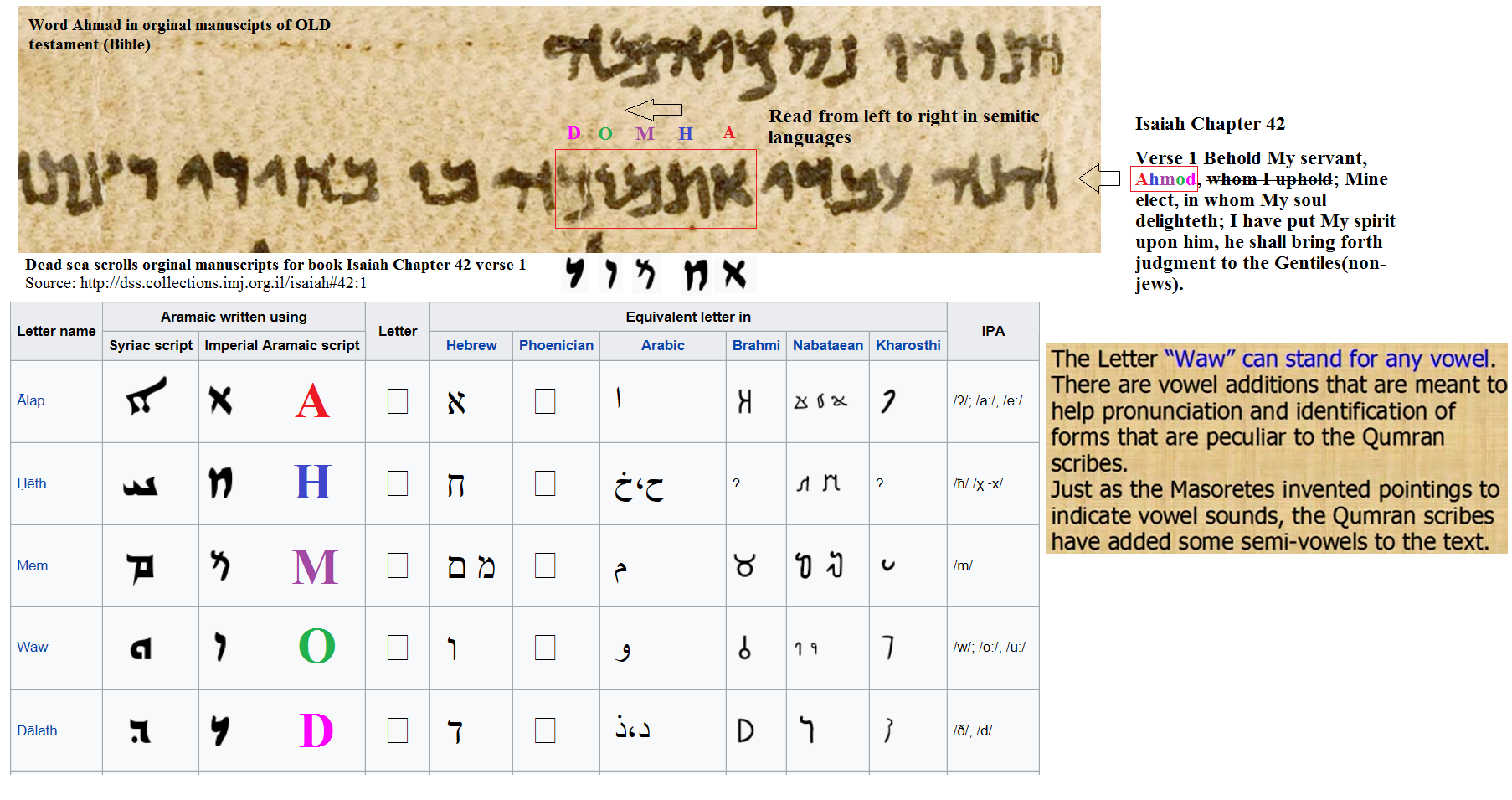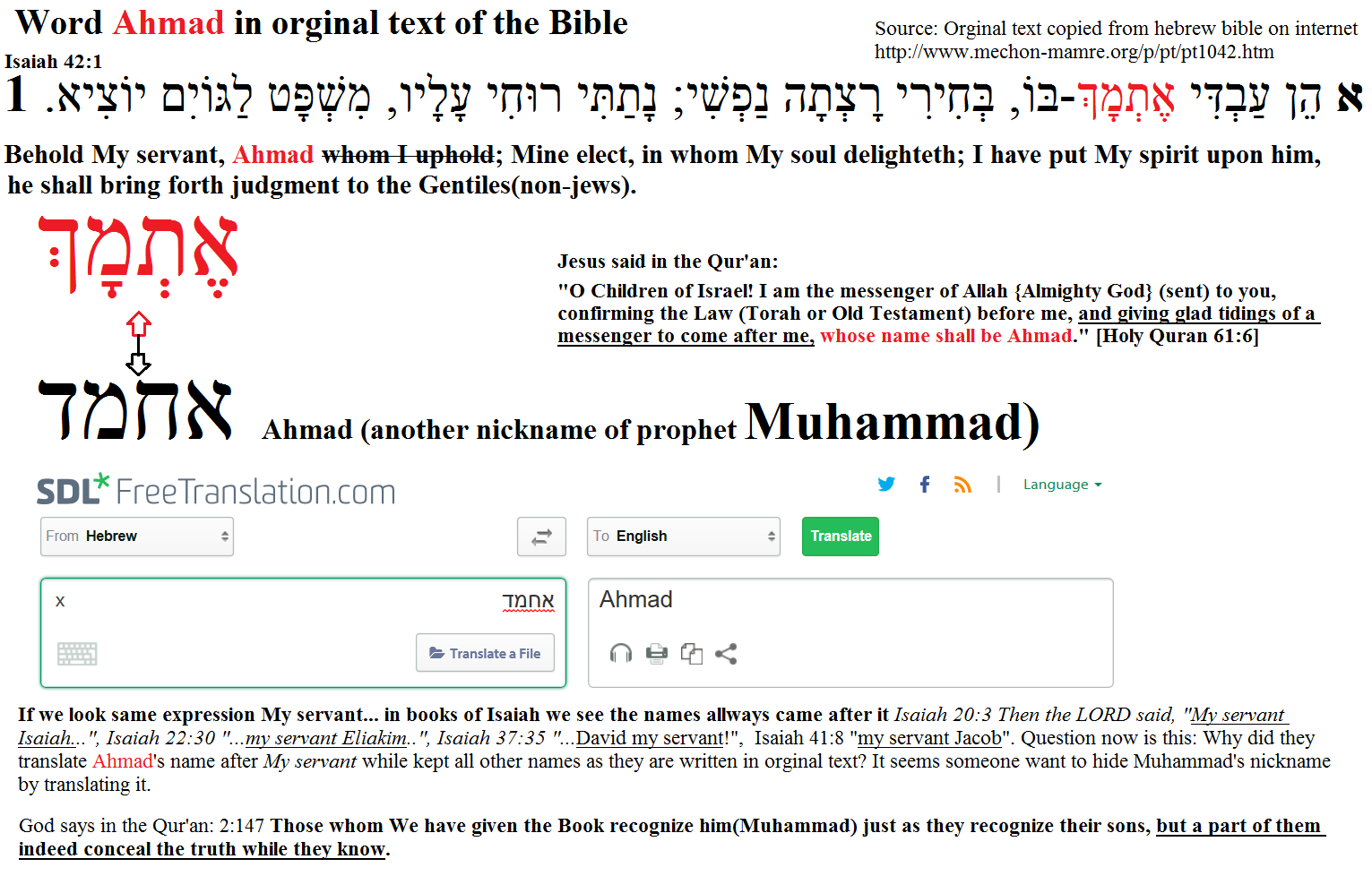great text which explain why Gospel of Barnbas is oldest written gospel, from before canonical gospels
http://www.al-mawrid.org/index.php/articles/view/the-gospel-of-barnabas#_ftn29The Gospel of Barnabas
Scriptures
I had written two installments of my article 'Barnabas, His Gospel and Its Credibility'[1], but could not complete it due to some other assignments. Although the article is still incomplete, it would be advisable for the readers to go through both of its installments once again. (Author)
'Epistle to Hebrews' had sometimes been attributed to Barnabas by some scholars, but, according to modern research, it was not written by Barnabas. Of course Barnabas was a scholarly person and he composed a 'Gospel', but the attribution of the 'Epistle to Hebrews' to him is not authentic. Actually there exists another 'Epistle of Barnabas'. It has been included in 'The Ante-Nicene Fathers, Translations Of The Writings of the Fathers down to A.D. 325', Ed. The Rev. Alexander Roberts & James Donaldson, WM. B. Eerdmans Pblg. Co., Grand Rapids, Michigan, Vol. I, pp. 133-149. Initially, there is a three page 'Introductory Note' to it. Necessary footnotes have also been afforded to it. Its attribution to Barnabas is also doubtful. However, it is a worth-reading treatise. As regards his Gospel, the Oxford Dictionary of the Christian Church asserts:
Gospel of Barnabaswas declared a rejected book in the Decretum Gelasianum by Pope Gelasius [Pope of Rome 492-96]. According to E. Von Dobschutz, it is a private compilation which was composed in Italy (but not at Rome) in the early sixth century.[2]
It is strange that a book which is claimed to be 'composed in Italy in the early sixth century' had been declared a 'rejected book' in the fifth century. So the observation of E. Von Dobschutz, if it has been truly attributed to him, is absurd and baseless and may be rejected outright. It is thus clear that the 'Gospel of Barnabas' had already been existing when Pope Gelasius declared it 'a rejected book' in the fifth century more than a hundred years earlier to the advent of Islam. As to its date of actually being written, there are reasons to believe that it had been written even before the 'Gospel according to Matthew' was written. I shall try to elaborate it just a few lines later.
As to the Gospel according to Matthew's date of being written, the research of the 'New Testament Introduction' claims it to be ca. A.D. 85-90. It asserts:
(1) Matthew(ca. A.D. 85-90). This gospel makes use of Mk as well as other traditions about Jesus and collections of Jesus' sayings. It was composed in Greek as the reference to Daniel as 'the prophet' in 24:15 implies. (…). Many scholars think that the community that formed the basis of the Matthean church had come from Palestine and settled in Syria. Mt 4:24 has the only reference in the gospels of Jesus' fame spreading 'throughout all Syria'. The community may have been predominantly Christians of Jewish background, since non-Jews (Gentiles) are referred to as outsiders (5:47; 6:7,32; 10:5-6, 17-18; 18:17).[3]
The results of the research of the 'Oxford Companion to the Bible' are also of similar nature. It has afforded the rationale of its conclusion as well. It observes:
It is commonly held that Matthew was written about 85 or 90 CE by an unknown Christian who was at home in a church located in Antioch of Syria. A date toward the end of the first century seems probable because the destruction of Jerusalem, which occurred in 70 CE, appears to be an event that was rapidly receding into the past (22.7). Although the apostle Matthew may have been active in founding the church in which the gospel story attributed to him arose (9.9; 10.3), it is unlikely that he was the story's author. On the contrary, the author exhibits a theological outlook, command of Greek, and rabbinic training that suggest that he was a Jewish Christian of the second rather than the first generation (cf. 13.52). Also, Antioch of Syria commends itself as the place where he may have been at home. Because the social conditions reflected in his story correspond with those that seem to have prevailed there: the city was Greek-speaking, urban, and prosperous, and it had a large population of both Jews and Gentiles.[4]
The Cambridge Companion to the Bible writes:
In the late first century, after the destruction of the temple, Matthew, Luke-Acts, and John were written. The mother church of Christianity, the Jerusalem community, was destroyed in the sack of Jerusalem, so power shifted definitively to the Gentile communities around the Mediterranean. Followers of Jesus continued to interpret the Bible to match their evolving understanding of Jesus and new communal circumstances.[5]
Even the identity of the author of the Gospel of Matthew is unknown and it is anonymous like the other gospels. The Cambridge Companion to the Bible notes:
This Gospel is anonymous, like the others. When the church in the second century sought to lend authority to its Gospels, it assigned each of them to an apostle or an associate of an apostle. About 130, Papias attributed this Gospel to Matthew[stress added] (who seems also to have been known as Levi; cf. Matt. 9:9 and Mark 2:13) and claimed that he wrote it in Hebrew. But its author used the Greek Gospel of Mark as a source. [It means that 'Matthew' was written after 'Mark'.], and the many scriptural quotations are from Greek translation rather than directly from the Hebrew Bible. Although we cannot determine who the author was, careful analysis shows us what his concerns were and on what basis he modified and expanded the Gospel tradition. The issues that are central for him reflect the developments described above that were taking place in Judaism around the years 95-100.[6]
The Cambridge Companion to the Bible also notes at another place:
The most plausible explanation for the relationship among the synoptic gospels is that Mark is the original, with Matthew and Luke drawing on Mark and a second common source (Q) but developing the details of structure and content independently.[7]
As to the date of the gospel of Mark, the same authority observes:
(…), and the oldest of the gospels, Mark, dates from no earlier than the late sixties and was written probably about the time of the Jewish revolt of 66-70.[8]
The time when the Gospel of Mark was written is also uncertain. Its concern with the threatened coming of armies to seize Jerusalem and destroy its temple suggests that it dates from the years after the Jewish nationalists began their revolt against the Romans but before the temple was destroyed: that is, between 66 and 70 CE.[9]
The 'New Testament Introduction' places it between AD 68 and 70:
Mark (ca. A.D. 68-70). Our earliest gospel, Mk has been used by both Mt and Lk. Mk emphasizes the need for Christians to expect sufferings.[10]
Although some of the scholars purposefully claim that the Gospel according to Matthew had been written earlier, but it is by no means safe to assign it a date prior to A.D. 70, as can easily be appreciated from the evidence recorded above, which assigns it some date around AD 85-90.
Barnabas died in A.D. 61. He had separated from Paul in A.D. 49 after a 'sharp contention' with him on the question of the inclusion of his cousin, John Mark, in the Second Missionary Journey (AD 49-52)[11]. He left for Cyprus for good. He might have immediately started composing his gospel and would have completed it within a year or two, i.e. AD 50 or 51 after which he started preaching it.
We see, when I Corinthians was written in c. AD 55[12] or AD 56[13], Barnabas was still alive, as stated in the New BD:
When I Corinthians was written Barnabas was still alive, and, like Paul and unlike most of their colleagues, supporting himself without drawing on the churches (I Cor 9:6 [which reads: 'Or is it only I and Barnabas who must work for a living.']).[14]
As regards his year of death, it is most probably AD 61. G. Milligan has concluded in his article 'Barnabas' in Hastings DB:
(…), while Col 4.10 has been taken as proving that by this time (about A.D. 63) Barnabas must have been dead, else Mark would not have rejoined Paul (cf. 2 Ti: 4.!!, 1P:5.13).[15]
It means that Barnabas must have died shortly before the Epistle to Colossians was written. So Barnabas' year of death can easily be ascertained, if the date of writing of this Epistle is confirmed. Here are some references to establish the date of this Epistle:
McKenzie's DB suggests AD 61-63 to be the date of writing of this 'Epistle to Colossians'.[16] William Smith's DB asserts under the heading of 'First imprisonment of St. Paul at Rome. A.D. 61-63':
To that imprisonment (…) belongs the noble group of letters to Philemon, to the Colossians, to the Ephesians and to the Philippians.[17]
The New Bible Dictionary has also assigned the same date to this 'Epistle to Colossians', as can be concluded from the following:
Paul had a stormy sea-voyage and, after being wrecked, spent the winter on Malta (c. AD 61). He reached Rome in the spring and spent the next 2 years under house-arrest (…). Most probably Paul was released in AD 63 (…).[18]
The Pictorial Bible Encyclopedia reports:
Philippians, Colossians, Philemon, written during Paul's imprisonment in Rome (ca. 60-64 CE, though scholars are divided as to the exact dates).[19]
The above evidence makes it clear that 'Epistle to Colossians' was written during the 'First imprisonment of St. Paul at Rome: A.D. 61-63'. Thus we can almost exactly ascertain his year of death. It can be located somewhere between AD 55 and 63. Most probably Barnabas died in AD 61.[20] The New Age Encyclopaedia reports:
Barnabas is supposed to have been martyred at Salamis in Cyprus in 61 AD,[21]
Merit Students Encyclopedia asserts:
Barnabas, Saint, an Apostle of Christ. Born Joseph, 1st century A.D. died about 60 A.D. (…). St. Barnabas is ranked as an Apostle even though he was not one of the 12 Apostles.[22]
Everyman's Encyclopaedia states:
Barnabas is supposed to have been martyred at Salamis in Cyprus in 61 AD, but many traditions take him to Milan, Rome, and Alexandria.[23]
The New Catholic Encyclopedia has also expressed similar views:
Death apparently came to him after Paul wrote of him, as though still alive, in I Corinthian 9.6 [in AD 55 or 56], and before Paul wrote to the Colossians [between AD 60 and 63] that Mark was now his colaborer (Col 4.10).[24]
It has thus been made clear that Barnabas died in ca. AD 61 whereas the 'Gospel according to Matthew' was written decades of years after it: ca AD 85-90; but not before AD 70. Even the 'Gospel according to Mark', which is considered to be the source of Matthew's Gospel, was written years after the death of Barnabas.
The New Encyclopaedia Britannica writes:
Barnabas' reputed tomb, was discovered in 488, is near the Monastery of St Barnabas, in the Cypriot city of Salamis, whose Christian community was founded by Paul and Barnabas.[25]
The 1907 edition of Britannica has recorded the name of the Byzantine Emperor, during whose reign the dead body of Barnabas was discovered, as Zeno (Emperor of the Eastern Roman Empire from AD 474 to 491).[26] New Catholic Encyclopedia says:
(…); his body was later found with his own hand-written copy of Matthew's Gospel over his heart.[27]
We have another report by 'Acta Sanctorum' that the manuscript discovered from his tomb was the gospel of Barnabas written with his own hand.[28]
It has been reported in the "Life of St. Barnabas" that the body of Barnabas was placed in a cave 1½ mile from Salamis. The manuscript of the 'Gospel according to Matthew', written with the author's own hand, was found on his bosom. The dead body was recovered intact during the reign of Emperor Zeno with the Gospel on its chest. The manuscript of the 'Gospel according to Matthew', written by the author in his own handwriting, was sent to Constantinople to be placed in the Emperor's Library. It was destroyed among other valuables during the conquest of Constantinople by the Turks.[29]
A Turkish journal, 'Ilime ve Sanat Dergisi', had published a write-up regarding the discovery of a ca. 19 centuries old Aramaic manuscript of this Gospel. It was written by Dr. Hamzah Piktash and was published in its issue of March-April, 1986. According to it a voluminous book was found by some people in a cave near the Turkish town of Hakari in 1984. They tore a leaf from it to get some information about it. They contacted Dr. Piktash to identify the manuscript. It had been written in the Aramaic language in Syriac script. It was written on Papyrus. Its dating revealed that it was written ca. 19 centuries back. On perusal, it came to be the Gospel of Barnabas written in Aramaic, the language of Jesus Christ. The discoverers left the photocopy of its only one leaf with Dr. Piktash. They disappeared; and were later arrested by the police while trying to smuggle it out. The manuscript was given in the custody of the government. Dr. Piktash states that the text with him was concordant with the English and Arabic translation of the Gospel of Barnabas to a great extent.[30]
We have seen above that the 'Gospel according to Matthew' was written many years after the death of Barnabas. How can it be possible that he wrote a book (Gospel according to Matthew) with his own hands which had actually been written many a year after his death and how could it get buried with him in his grave? Actually the Gospel found from his grave lying over his heart was, and could only be, his own gospel, the Gospel of Barnabas, written with his own hand.
There is evidence which shows that the Gospel of Barnabas, which would have been written by AD 51, had become commonly known in Christian community of NW. According to McKenzie St. Paul wrote the Letter to the Galatians in AD 54.[31] W. Smith says:
When he left Antioch, he "went over all the country of Galatia and Phrygia in order, strengthening all the disciples," (…). It is probable that the Epistle to the Galatians was written soon after this visit―A.D. 56-57.[32]
The 7th Day Adventist BD, under the entry 'Galatians, Epistle to the' says, '(…), the date of writing would be the winter of A.D. 57-58, and the place of writing doubtless Corinth.'[33]
According to the New American Bible:
If it is addressed to the Galatians in the north, the letter was probably written around A.D. 54 or 55, most likely from Ephesus after Paul's arrival there for a stay of several years on his third missionary journey.[34]
A New Catholic Commentary writes:
Nevertheless, because of certain similarities of mood and tone and parallels in phraseology with I Cor and Rm, many commentators with Benoit, ascribe Gal to a date about the same as Rm, i.e. c. A.D. 56.[35]
It is thus clear that St. Paul wrote the Epistle to the Galatians sometime between AD 54 and 58, whereas the Gospel of Barnabas had been written in c.51. Paul writes in Galatians:
I am amazed that you are changing so soon from the one who called you by means of (Christ's) grace, to a different gospel which is not another one, only there are some unsettling you and willing to pervert the gospel of Christ. But even if we or an angel from heaven were to proclaim the gospel [to you] differently than how we proclaimed the gospel to you, let that one be anathema [accursed]. As we have just said, and as I now say once again: If anyone should proclaim the gospel to you contrary to what you have received, let him be anathema![36]
A footnote has been inserted to these verses saying:
Paul is declaring in the strongest manner that the gospel he preaches is the one and only way to salvation, and that to preach another gospel is to nullify the death of Christ. Paul's curse reminds the readers of the absolute truth of his gospel.[37]
Obviously Paul is pointing to some other 'gospel' in these verses of the Epistle to the Galatians. This Epistle to the Galatians was not written before ca. AD 54 to 58. There did not exist any of the 4 gospels by that time. Therefore the word 'gospel' here means the doctrines which Paul had designed and was preaching. On the other hand the Gospel of Barnabas had already been compiled in ca. AD 51. It was only Barnabas who was preaching some 'gospel' contrary to that of Paul's. It can thus be appreciated that Paul indicated to the 'Gospel of Barnabas' in his Epistle to the Galatians. It makes quite clear that there existed the 'Gospel of Barnabas' prior to AD 54-58, before any of the 4 gospels had been compiled.
All the above discourse makes it abundantly clear that:
i) Barnabas had died in ca. AD 61.
ii) The 'Gospel according to Matthew', The 'Gospel according to Mark', and all the other Gospels, were written after his death. None of the Gospels had been written during the lifetime of Barnabas.
iii) The dead body of Branabas was discovered in AD 488 from the Cypriot city of Salamis.
iv) A manuscript of a Gospel was found in his tomb lying on his heart. Scholars identify it in three different ways: (a) it was the Gospel of Barnabas written with his own hand [as stated in the 'Acta Sanctorum'], (b) it was the 'Gospel according to Matthew' written by Matthew himself with his own hand [as stated in the 'Life of St. Barnabas'] and (c) it was the 'Gospel according to Matthew' written by Barnabas [as stated in the 'New Catholic Encyclopedia'].
v) As regards the options (b) and (c) above, they are absolutely impossible as the 'Gospel according to Matthew' was written many years after the death of Barnabas.
vi) It could naturally have been the Gospel of Barnabas and none other than it. It may have been in the Aramaic language, the language used by Jesus Christ.
vii) This manuscript was sent to Constantinople (Istanbul of today) to be preserved in the Emperor's Library.
viii) An Aramaic Manuscript of the Gospel of Barnabas dating to the first century AD was discovered in a Turkish town, Hakari in AD 1984.
ix) Most probably it may have been the same MS. found from the tomb of Barnabas in AD 488 near the Cypriot city of Salamis or some manuscript copied from it.
x) Paul has referred to some 'gospel' in his Epistle to the Galatians and this Epistle was written ca. AD 54-58. None of the 4 gospels had been written by that time. Paul could have naturally pointed only to the 'Gospel of Barnabas', which according to him, preached some 'gospel' contrary to his own teachings.
It is now unto the reader himself to draw a reasonable conclusion from the above data.There is a 'Catalogue of the 60 Canonical Books' (instead of the present canon of 66 books). It has given a list of 25 apocryphal books as well. 'The Gospel according to Barnabas' has been recorded in it at Serial No. 24.[38] It shows that this Gospel of Barnabas existed in the early years of Christianity and it was purposely banned by the Christian authorities.
How could some Muslim scholar have written it? It was discovered by the Christians, it was introduced to the world by the Christians, and it was published by the Christians. The Muslims knew nothing about this 'Gospel of Barnabas' until George Sale (AD 1697-1736) mentioned it[39] in the prologue (To The Reader) of his English translation of the Qur'an (AD 1734), named 'Alkoran of Mohammed'.[40] Then they got their foremost opportunity of going through it after its English translation was first published by the Clarendon Press, Oxford in 1907. Before its introduction by the Christian scholars in 1907, the Muslim scholars had no approach to it. All the Muslim literature, throughout the centuries, is void of any quotation from this Gospel. Had they known it, they must have profusely quoted from it, because it prophesied about the Holy Prophet by mentioning his name.
Why do the modern Christians not own and accept it? Simply because there is a lot in it which does not agree with their ideals[41] and because there are in it a number of prophecies regarding the Prophet of Islam by his very name in unequivocal terms. There might be some later alterations, adulterations, and interpolations in it like almost all the other books of the Bible. There might have crept into it some misunderstandings or confusions of the writer himself. But its existence as a book written by Barnabas cannot be denied. Its subject matter, its language, its confident style, its exhaustive material on important themes which is elsewhere unavailable, and its presentation of the logical and reasonable themes are superior to the four Gospels of the NT of the Bible. It is unfortunate for the Christians that they have deprived themselves of this valuable treasure of religious knowledge. Here are some excerpts regarding only the Prophet of Islam, Muhammad (sws), from Lonsdale & Laura Ragg's 'The Gospel of Barnabas':
But after me shall come the Splendour[42] of all the prophets and holy ones, and shall shed light upon the darkness of all that the prophets have said, because he is the messenger of God.[43]
Verily I say unto you, that every prophet when he is come hath borne to one nation only the mark of the mercy of God. And so their words were not extended save to that people to which they were sent. But the messenger of God, when he shall come[44] [stress added] God shall give him as it were the seal of His hand, insomuch that he shall carry salvation and mercy to all the nations of the world that shall receive his doctrine.[45] He shall come with power upon the ungodly, and shall destroy idolatry,[46] insomuch that he shall make Satan confused; for so promised God to Abraham, saying: "Behold, in thy seed I will bless all the tribes of the earth; and as thou hast broken in pieces the idols, O Abraham, even so shall thy seed do." James answered: 'O master, tell us in whom this promise was made; for the Jews say "in Isaac," and the Ishmaelites say "in Ishmael." ' (…). Believe me, for verily I say to you, that the promise was made in Ishmael, not in Isaac [For it is a fact that no prophet from the progeny of Isaac can be claimed ever to have broken in pieces the idols as Abraham had broken them in pieces].[47]
I therefore say unto you that the messenger of God is a splendour that shall give gladness to nearly all that God hath made, for he is adorned with the spirit of understanding and of counsel, the spirit of wisdom and might, the spirit of fear and love, the spirit of prudence and temperance; the spirit of justice and piety, the spirit of gentleness and patience,[48] (…). O blessed time, when he shall come to the world![49] (…). And when I saw him my soul was filled with consolation, saying: "O Mohammed, God be with thee.[50]
Jesus answered: '(…). As for me, I am now come to the world to prepare the way for the messenger of God, who shall bring salvation to the world. (…).' Then said Andrew: 'Master, tell us some sign, that we may know him.' Jesus answered: 'He will not come in your time, but will come some years after you, when my gospel shall be annulled insomuch that there shall be scarcely thirty faithful.[51] At that time God will have mercy on the world, and so he will send his messenger, (…). He shall come with great power against the ungodly, and shall destroy idolatry upon the earth[52]. And it rejoiceth me because that through him our God shall be known and glorified, and I shall be known to be true; and he will execute vengeance against those who shall say that I am more than man. Verily I say to you that the moon shall minister sleep to him in his boyhood,[53] and when he shall be grown up he shall take her [the moon] in his hands.[54] (…). He shall come with truth[55] more clear than that of all the prophets, (…); and so when idolatry shall be seen to fall to the ground and confess me a man like other men, verily I say unto you the messenger of God shall be come.[56]
Jesus answered: 'The name of the Messiah is admirable[57], for God himself gave him the name when he had created his soul, and placed it in a celestial splendour. God said: "Wait Mohammed; (…). When I shall send thee into the world I shall send thee as my messenger of salvation, and thy word shall be true[58], insomuch that heaven and earth shall fail but thy faith shall never fail." Mohammed is his blessed name.'[59]
Whereupon I am sure that he who shall sell me[60] shall be slain in my name, for that God shall take me up from the earth, and shall change the appearance of the traitor[61] so that everyone shall believe him to be me; nevertheless, when he dieth an evil death, I shall abide in that dishonour[62] for a long time in the world. But when Mohammed shall come, the sacred messenger of God, that infamy shall be taken away. And this shall God do because I have confessed the truth of the Messiah; who shall give me this reward, that I shall be known to be alive and to be a stranger to that death of infamy.'[63]





